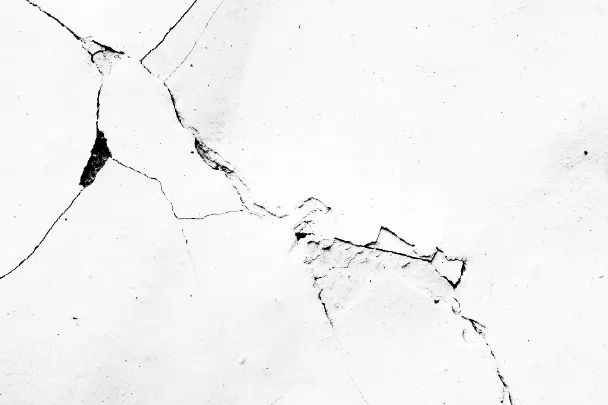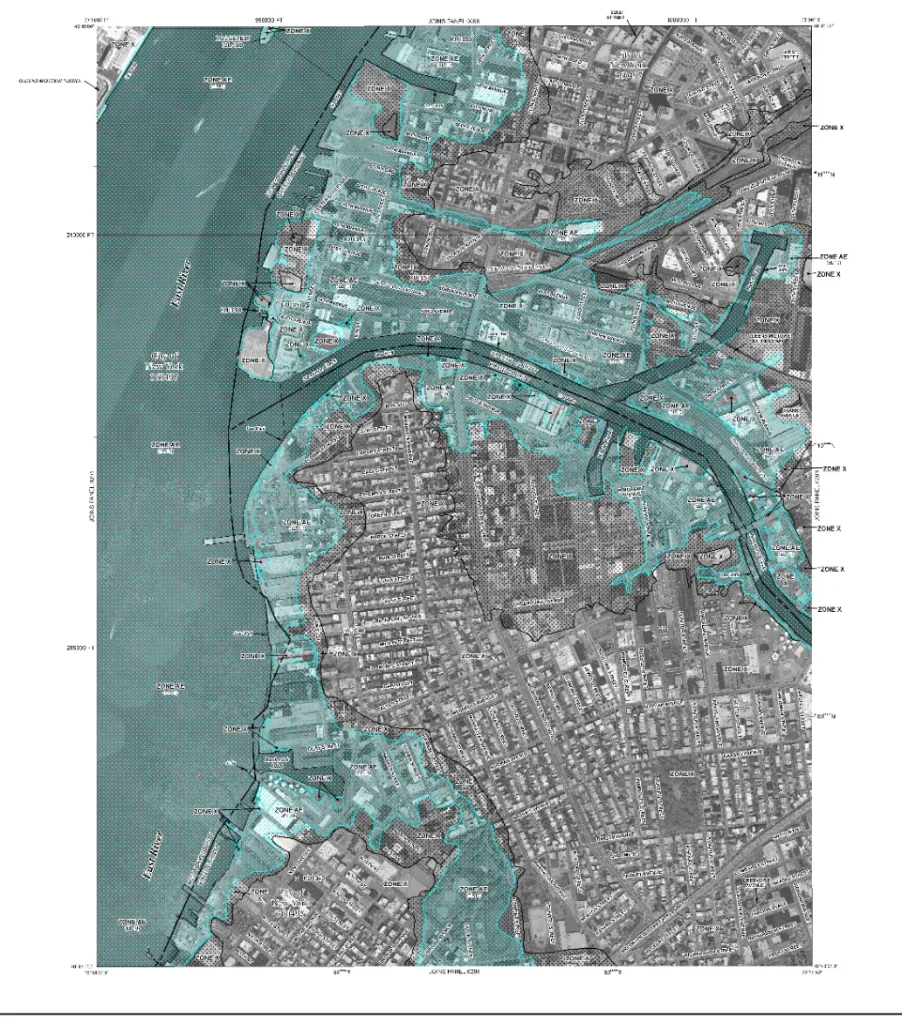Signs of Foundation Settlement | Piers and Piles
Foundation settlement is a common issue that can compromise the structural stability of any building. Over time, foundations may shift due to various factors, causing the structure to sink or settle unevenly. When this happens, cracks, sloping floors, or other visible signs of damage can begin to appear. For property owners in areas like Long Island, Brooklyn, and Queens, recognizing the early signs of foundation settlement is essential in preventing serious and costly damage down the line.
In regions with problematic soil conditions, frequent flooding, and high-water tables, the risk of foundation settlement increases. Addressing these issues early is key to maintaining the longevity and safety of your property.
Schedule Your Free Foundation Inspection Today—Protect Your Property from Settlement Damage!
What is Foundation Settlement?
Foundation settlement occurs when the soil beneath a building’s foundation can no longer support the weight of the structure. This leads to parts of the foundation sinking or shifting over time, resulting in potential structural problems. Several factors contribute to foundation settlement, including soil composition, moisture content, and poor construction practices.
In New York, where expansive clay soils and fluctuating water tables are common, foundation settlement is a frequent concern. Poorly compacted fill soils, erosion from heavy rainfall, and the freeze-thaw cycles of the region all contribute to foundation movement.

There are two main types of foundation settlement:
- Uniform Settlement: Uniform Settlement occurs when the foundation sinks evenly, which may cause minimal structural damage but can still lead to problems over time.
- Differential Settlement: Differential Settlement happens when one part of the foundation sinks more than another, leading to significant structural issues such as cracks, sloping floors, and misaligned windows and doors.
Understanding the causes and types of foundation settlement is the first step in addressing potential issues before they become severe. If you suspect that your property is experiencing foundation settlement, it’s important to act quickly. At Piers and Piles, we specialize in diagnosing and resolving foundation problems, ensuring the long-term stability of your Long Island home or business. Contact us today for a professional inspection and peace of mind knowing your foundation is secure.
Early Warning Signs of Foundation Settlement
As previously stated, foundation settlement can lead to serious structural issues if left unaddressed. Early detection is key to preventing costly repairs and ensuring the long-term safety of your property. Recognizing the early warning signs of foundation settlement allows homeowners to take swift action before minor issues escalate into major problems.
Here are some common signs to look out for if you suspect your foundation is settling:
- Cracks in Walls and Floors: One of the most visible signs of foundation settlement is the appearance of cracks in both interior and exterior walls. Vertical or diagonal cracks often form in drywall, plaster, or brickwork as the foundation shifts. In addition, cracks in concrete floors or basement walls can indicate uneven settling beneath the structure.
- Doors and Windows Sticking: As the foundation shifts, the frame of the house may also move, leading to doors and windows becoming misaligned. If you notice doors or windows that are difficult to open or close, this could be an early indication of foundation settlement.
- Sloping or Uneven Floors: A noticeable dip or slant in your floors is another common sign of foundation settlement. Uneven surfaces may indicate that part of the foundation has sunk, causing the structure to shift and become unbalanced.
- Gaps Around Windows and Doors: If you begin to see gaps forming between window frames and walls or between door frames and floors, this could be a sign that the foundation is settling unevenly. These gaps occur because the walls are shifting as the foundation sinks.
- Bowed or Leaning Walls: In more advanced cases of foundation settlement, basement or retaining walls may start to bow or lean inward due to the pressure of shifting soil. This is a serious sign that the foundation is under strain and needs to be addressed quickly to prevent further damage.
- Chimney Separating from House: A leaning or tilting chimney that appears to be pulling away from the house is another clear indicator of foundation settlement. Since chimneys are often constructed on separate foundations, they are particularly vulnerable to movement when the surrounding soil shifts.
Noticing any of these signs in your home or commercial property can be alarming to say the least, but acting quickly can prevent further damage. If you suspect foundation settlement, it’s super important to consult with a professional as soon as possible. At Piers and Piles, we specialize in foundation stabilization and can provide expert solutions and advice tailored to your property’s needs. Don’t wait—contact us today for a free thorough inspection and peace of mind.

Main Causes of Foundation Settlement in New York
Foundation settlement in New York is often the result of specific environmental and structural factors. Understanding the root causes of settlement is essential for preventing damage to your property. From soil composition to frequent flooding and fluctuating water tables, there are several factors that can contribute to foundation issues.
Below are the main causes of foundation settlement that property owners in Long Island, Brooklyn, and Queens should be aware of:
- Soil Type and Conditions: In New York, particularly in Long Island, Brooklyn, and Queens, soil types can range from expansive clay to loose sandy soils, both of which can cause foundation settlement. Expansive soils tend to shrink and swell with moisture, leading to movement beneath your foundation, while sandy soils may shift and erode over time.
- Fluctuating Water Tables: High water tables are common in coastal areas like Long Island and can cause soil to become saturated. As the water table rises and falls, the soil can expand and contract, leading to uneven foundation movement and settlement.
- Improper Drainage Systems: Poor drainage around the foundation can lead to erosion of supporting soil, causing the foundation to lose its stability. In urban areas like Brooklyn and Queens, improper grading or drainage systems may result in water pooling near the foundation, weakening the soil and causing it to shift.
- Seasonal Changes: New York’s freeze-thaw cycles can also have a significant impact on foundations. When water in the soil freezes, it expands, putting pressure on the foundation. As it thaws, the soil contracts, leaving voids that can cause settlement. This process, repeated over time, contributes to foundation instability.
Once again, addressing the underlying causes of foundation settlement is key to preventing long-term structural issues. If your property is affected by any of these factors, and you’re in the Long Island area, click any of the buttons on our site, and take advantage of our free inspection and expert assessment! We take our responsibility to our neighboring communities very seriously and our opinion is always free!
When to Call a Professional
Like we pointed out in the sections above, it’s very important to catch foundation settlement issues as soon as signs appear, as delaying repairs can result in more extensive and expensive damage. If you notice any of the advanced signs, such as large cracks, sinking porches or patios, or water entering your basement, it’s time to consult a professional. Acting quickly can prevent more serious structural issues and preserve the value of your home.
Why Choose Piers and Piles to Repair Your Foundation?
When you choose Piers and Piles, you’re partnering with a trusted team dedicated to delivering top-notch foundation solutions. With decades of experience and a focus on customer satisfaction, we provide tailored services that ensure long-term stability for your property.
Here are the key benefits of working with us:
- Decades of Industry Experience
- Certified and Highly Skilled Team
- Tailored Solutions for Every Project
- Advanced, Long-Lasting Repair Methods
- 30-Year Warranties on All Services
- Friendly and Responsive Customer Service
Enjoy peace of mind and exceptional service with Piers and Piles—contact us today for a free inspection!
Expert Solutions for Foundation Settlement in Long Island
At Piers and Piles, we understand that foundation settlement can be a serious concern for property owners in Long Island. With over 20 years of experience and a team of certified professionals, we specialize in providing long-lasting, tailored solutions to stabilize and protect your home or business. Our expert team is highly trained and certified in the latest foundation repair techniques, ensuring that every job is done with precision and care.
Whether you’re dealing with minor foundation issues or significant structural movement, we offer free inspections to assess your property and recommend the best course of action.
Here are our top 6 foundation settlement solutions:
Helical Piers and Anchors
Helical piers and anchors are ideal for stabilizing foundations in areas with unstable soil, such as sandy or expansive clay soils commonly found in Long Island. These piers are screwed deep into stable soil layers, providing a secure foundation for your building.
Push Piers and Piles
Push piers are another highly effective solution for foundation settlement, especially in areas where the soil has shifted or compacted unevenly. These piers are hydraulically driven into the ground until they reach load-bearing strata, providing immediate support and lifting the foundation back to its original level.
Micropiles
Micropiles are a great option for properties with limited access or challenging soil conditions. These small-diameter piles are drilled into the ground and reinforced with steel, providing exceptional load-bearing capacity in areas where traditional piers may not be feasible.
Poly Foam Chemical Grouting
Poly foam chemical grouting is a cutting-edge solution for lifting and leveling sinking foundations. This method involves injecting high-density polyurethane foam into the soil beneath your foundation. As the foam expands, it fills voids and compacts loose soil, providing a solid, stable base for your foundation.
Slab and Pier Systems
Slab and pier systems are ideal for stabilizing sinking or settling concrete slabs. These systems provide support by anchoring piers beneath the slab and lifting it to the correct level. This solution is perfect for homes and commercial properties experiencing settlement issues, ensuring a strong, level foundation that lasts for years.
Compaction Grouting
Compaction grouting strengthens the soil by injecting grout into the ground, which compacts loose soils and fills voids beneath the foundation. This method is highly effective in areas with weak or collapsing soil, ensuring long-term foundation stability and preventing further settlement.
Free Foundation Inspections in Long Island
If you’re noticing signs of foundation settlement, such as cracks, uneven floors, or sticking doors and windows, it’s important to act quickly. At Piers and Piles, we offer free foundation inspections throughout Long Island to help you identify the root cause of the issue and provide the best solution for your property. Our experienced team will assess the severity of the settlement and recommend the most effective solution to restore stability to your home or business.
Signs of Foundation Settlement in Your Long Island, Brooklyn, or Queens Home? Call Now for Your Free Assessment!
Foundation settlement is a serious issue that, if left unaddressed, can lead to costly and dangerous damage to your home. Identifying the early warning signs and acting quickly can save you from more extensive repairs down the line. At Piers and Piles, we are experts with all types of foundation settlement issues. We’re committed to providing reliable, long-term solutions for foundation settlement, backed by over 20 years of experience and 30-year warranties. Don’t wait until it’s too late—schedule your foundation inspection with Piers and Piles today and protect your home’s stability for the future.
Act Now to Safeguard Your Foundation—Contact Piers and Piles for a Free Assessment!